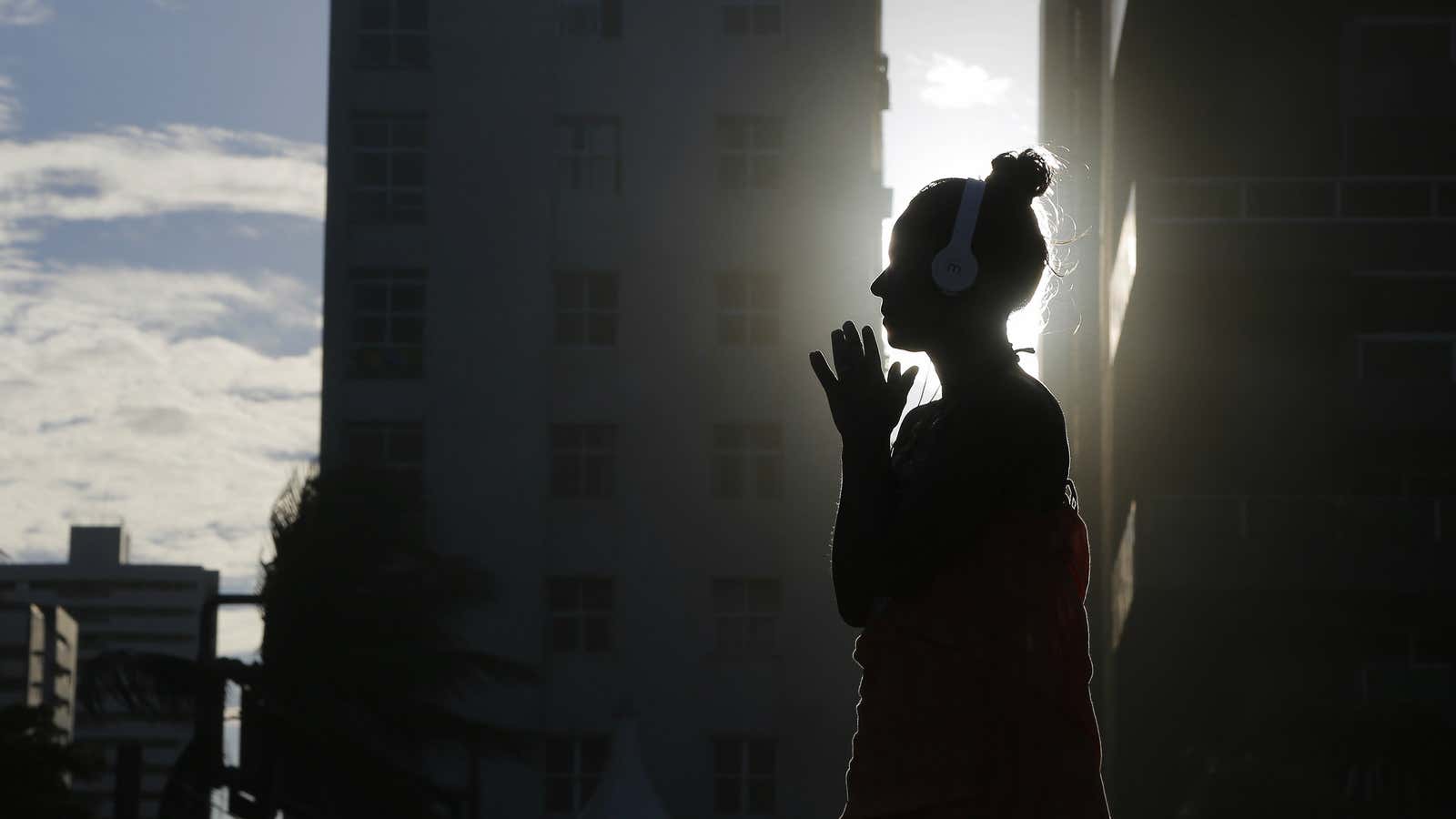These days, it’s not particularly novel or interesting to say “I’m obsessed with podcasts” but nevertheless, I am.
I listen to them so obsessively, I sometimes wonder if I should occasionally allow the moments where I am putting away my laundry, commuting to work, chopping vegetables, or running in the park to be filled with my own thoughts rather than someone else’s. But most of the time, I don’t. There are just too many good podcasts to get through.
So vast is the number and variety of podcasts in the mediascape, there is always something to listen to. But unlike a lot of the bite-sized content on the internet, most podcasts are enough of a time investment that a level of discernment goes into deciding which episodes to hit play on. My similarly podcast-obsessed sister’s criteria is particularly exacting: “I have to be so emotionally invested that I’m either laughing out loud or sobbing.”
When it comes to my own lineup, I recently noticed a trait that makes me cut a given episode automatically: if it was recorded in front of a live audience. While there are several popular podcasts series that have always been recorded as such—The Moth and 2 Dope Queens, for example—my particular gripe is for podcasts normally recorded in studio, but every now and then record in front of a live audience and upload the result as a regular episode. The popular political podcast Pod Save America, which recently announced a series of hour-long specials with HBO, is a regular offender. I happily listen to their studio episodes, which can go well over an hour long, but I can’t for the life of me make it through one of their now-frequent live audience episodes.
It’s true this format is not particularly new, but, anecdotally at least, it seems to be becoming more common. And given the industry is grasping for a viable business model despite its burgeoning popularity (Casper, Squarespace, and MeUndies ad spots cannot sustain them all) it’s easy to see why podcasts are treating live shows like musicians treat live gigs: as a cash cow. And with prestige media companies like HBO making a play in the podcast space, we’re likely to see more overlap between podcasting and other forms of entertainment in the future. In fact just this week it was announced that the New York Times‘ podcast The Daily has become so popular that a longer version will be syndicated by American Public Media starting in April.
And yet, I utterly loathe live recordings. They go against everything I love about the medium of podcasting itself: that it is calming to listen to, not audibly jarring or interruptive, and I feel like the hosts or guests are talking to just me. Whereas public radio greats have an air of authority by mere virtue of being on NPR, the connection I build up with certain podcast hosts I listened to “before they were cool” feels genuine. The fact that it’s not reciprocal doesn’t matter much—until they invite an audience of people into my ears to shatter the illusion. They begin making jokes for the audience, not for me. The grating sound of applause or laughter fills the pauses that usually give me space to ponder. The echo of a theater sounds like the opposite of the uncommon silence of a studio I usually cherish.
Now, before you @ me, some caveats: I get that not all live podcast recordings are created equal, both in terms of sound quality and content. And I’m also not suggesting podcasters shouldn’t find a way to make money off of their growing fanbases—I just have no interest in listening to them do that as a downloaded episode.
When I asked Nick Quah, a podcast critic for Vulture who also writes the popular Hot Pod newsletter, if he thought the growth of recorded-live podcasts risks alienating loyal listeners, he said it depends on how heavily you weigh what he calls “the intimacy thesis.”
“The intimacy thesis is the notion that podcasting’s fundamental value as a media experience lies in its capacity to create a uniquely intimate relationship between the show and the listener. I think that’s true, but I think it’s overly interpreted to be something that mostly exists between the talent and the listener,” Quah said. “I happen to think that you can create really good podcast experiences around live shows. You just have to be thoughtful and cognizant about sound quality, editing, the balance of sound between the performers and the audiences.”
The intimacy thesis definitely explains why I listen to podcasts with such devotion. I am so reliant on the moment each day when I leave the office and allow The Daily host Michael Barbaro’s earnest questions and just-so diction to flood my ears as I navigate the chaos of Oxford Circus station, that it’s no exaggeration to say I am thoroughly emotionally attached to the entire experience. I’m hyper-alert for the moments Russel Brand goes on profound and breathless five-minute thought-tangents on his surprisingly spiritual Under the Skin podcast, and I don’t want an audience there that might distract him.
Am I being precious? You bet. But in roughly a decade of listening to podcasts, I’ve come to prize my experience of the medium as creating a lot of space for something that most other forms of modern entertainment seem to crowd out: deep thought. While Quah contends that this intimacy can, with the right approach, be extended beyond a connection between the listener and talent to one between a listener and the “show experience,” I remain steadfastly unconvinced.
I want to pretend my my podcasts are recorded just for me.
